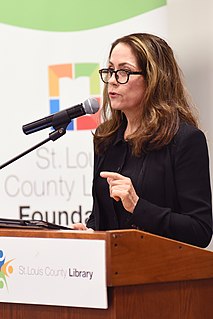A Quote by John Green
I learned that myth doesn’t mean a lie; it means a traditional story that tells you something about people and their worldview and what they hold sacred. Interesting.
Related Quotes
Animism is not a belief system, but a worldview: The world is a sacred place and we are part of it. The factuality of this statement is not the issue. To say that the world is a sacred place is to make a statement about values, not facts. It’s a statement about what you mean by ‘sacred,’ just as ‘Money can’t buy happiness’ is a statement about what you mean by ‘happiness.’ To put it all very simply, animism isn’t a belief system, it’s a value system.
A myth is a fantasy, a preferred lie, a foundational story, a hypnotic trance, an identity game, a virtual reality, one that can be either inspirational or despairing. It is a story in which I cast myself; it is my inner cinema, the motion picture of my inner reality - one that moves all the time. No diagnosis can fix the myth, no cure can settle it, because our inner life is precisely what, in us, will not lie still.
Suppose whether or not someone tells me a lie depends only on whether he wants to, but he is morally indifferent, he doesn't care much about the truth or about me, and his self interest, which he worships, tells him to lie, and so it comes about that given his psychology, it is a forgone conclusion that he will lie to me. I think in this case he is still blameworthy, and that implies, among other things, that he did something he ought not do.
PEOPLE DIE.
This is the fact the world desperately hides from us from birth. Long after you find out the truth about sex and Santa Claus, this other myth endures, this one about how you’ll always get rescued at the last second and if not, your death will at least mean something and there’ll be somebody there to hold your hand and cry over you. All of society is built to prop up that lie, the whole world a big, noisy puppet show meant to distract us from the fact that at the end, you’ll die, and you’ll probably be alone.
The Navajo, for example, regard their traditional lands as within the four sacred peaks. One of those sacred peaks is the San Francisco Peaks where the ski resort, one of the holiest, sacred mountains in Navajo cosmology. I mean, it's considered a horrible desecration. I mean, you know, put it into another cultural context and you wouldn't be able to think of that being, with any other racial group. But for Indians because, you know, we think they really don't care about land or they have primitive ideas or they don't have ownership, we completely disrespect that.
I think my first general rule is that most of my experiences are not that interesting. It's usually other people's experiences. It's not that entirely conscious. Somebody tells me a story or, you know, repeats an anecdote that somebody else told them and I just feel like I have to write it down so I don't forget - that means for me, something made it fiction-worthy. Interesting things never happen to me, so maybe two or three times when they do, I have to use them, so I write them down.
Too many writers think that all you need to do is write well-but that's only part of what a good book is. Above all, a good book tells a good story. Focus on the story first. Ask yourself, 'Will other people find this story so interesting that they will tell others about it?' Remember: A bestselling book usually follows a simple rule, 'It's a wonderful story, wonderfully told'; not, 'It's a wonderfully told story.'



































